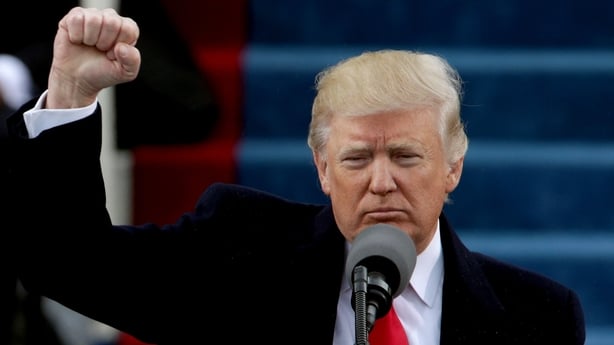Billionaire investor Wilbur Ross has been sworn in as US Commerce Secretary after the Senate earlier confirmed him by 72 votes to 27, with strong support from Democrats.
Mr Ross will be President Donald Trump's top official on trade matters. He has been highly critical of China's trade practices.
Mr Trump has designated the 79-year-old to lead a renegotiation of the 23-year-old North American Free Trade Agreement between the US, Canada and Mexico.
In 2011, Mr Ross was among a group of investors who bought a 35% stake in Bank of Ireland, enabling it to avoid full State ownership - the only Irish lender to do so.
Mr Ross drew votes from 19 Democrats and one independent, partly because of an endorsement from the United Steelworkers union for his efforts in restructuring bankrupt steel companies in the early 2000s, which saved numerous plants and thousands of jobs.
He was criticised by some Democrats as another billionaire in a Trump Cabinet that says it is focused on the working class, and for being a "vulture" investor who has eliminated some jobs.
Reuters reported last month that Mr Ross's companies had shipped about 2,700 jobs overseas since 2004.
The investor will oversee a sprawling agency with nearly 44,000 employees responsible for combating the dumping of imports below cost into US markets, collecting census and critical economic data, weather forecasting, fisheries management, promoting the United States to foreign investors and regulating the export of sensitive technologies.
While commerce secretaries rarely take the spotlight in Washington, Mr Ross is expected to play an large role in pursuing Mr Trump's campaign pledge to slash US trade deficits and bring manufacturing jobs back to the US.
Mr Ross will join other major players on the economic team, including Treasury Secretary Steven Mnuchin and Gary Cohn, director of the White House National Economic Council.
Some experts said Mr Ross could serve as a counterweight to advisers such as Peter Navarro, the University of California-Irvine economics professor who heads Mr Trump's newly-created White House National Trade Council.
Mr Navarro has advocated a controversial 45% across-the-board tariff on imports from China that Mr Trump threatened during his campaign.
"I expect that Ross will quickly become the administration's chief trade spokesman, and that Navarros influence will be felt indirectly, rather than through public statements or testimony," said Gary Hufbauer, a senior fellow and trade expert at the Peterson Institute for International Economics.
At his confirmation hearing, Mr Ross downplayed chances of a trade war with China, while calling it the "most protectionist" large economy. He vowed to level the playing field for US companies competing with Chinese imports and those trying to do business in China's highly restricted economy.
Mr Ross, estimated by Forbes to be worth $2.9bn, built his fortune in the late 1990s and early 2000s by investing in distressed companies in steel, coal, textiles and auto parts, restructuring them and often benefiting from tariff protections put in place by the Commerce Department.
Trump to address joint sitting of Congress
Meanwhile, Mr Trump will deliver his first live prime time speech to the nation when he addresses a joint sitting of the US Congress later tonight.
In the year they are elected, a US President does not give a State of the Union address but rather is invited to address members of the House of Representatives and the Senate to outline their vision for the country, in a live televised speech.
Senior White House officials have said the president's speech tonight will be "very optimistic" - which will be in contrast to the dark speech he delivered on Inauguration Day.

In keeping with tradition, and despite his administration's contentious relationship with the media, Mr Trump will have lunch with news anchors from the major US networks to brief them on his speech.
He will also sign two more Executive Orders today - one undoing Obama-era clean water protections and another related to historically black colleges and universities improving their access to the White House and increasing the percentage of the federal education budget they receive.
President Trump will also sign two new laws - one directing NASA to implement programmes to encourage women and girls to study science, technology, engineering and mathematics (STEM subjects) and pursue space careers in space.
The second authorises the National Science Foundation to encourage women entrepreneurs.
The White House confirmed that the president will sign a new travel ban order later this week.

